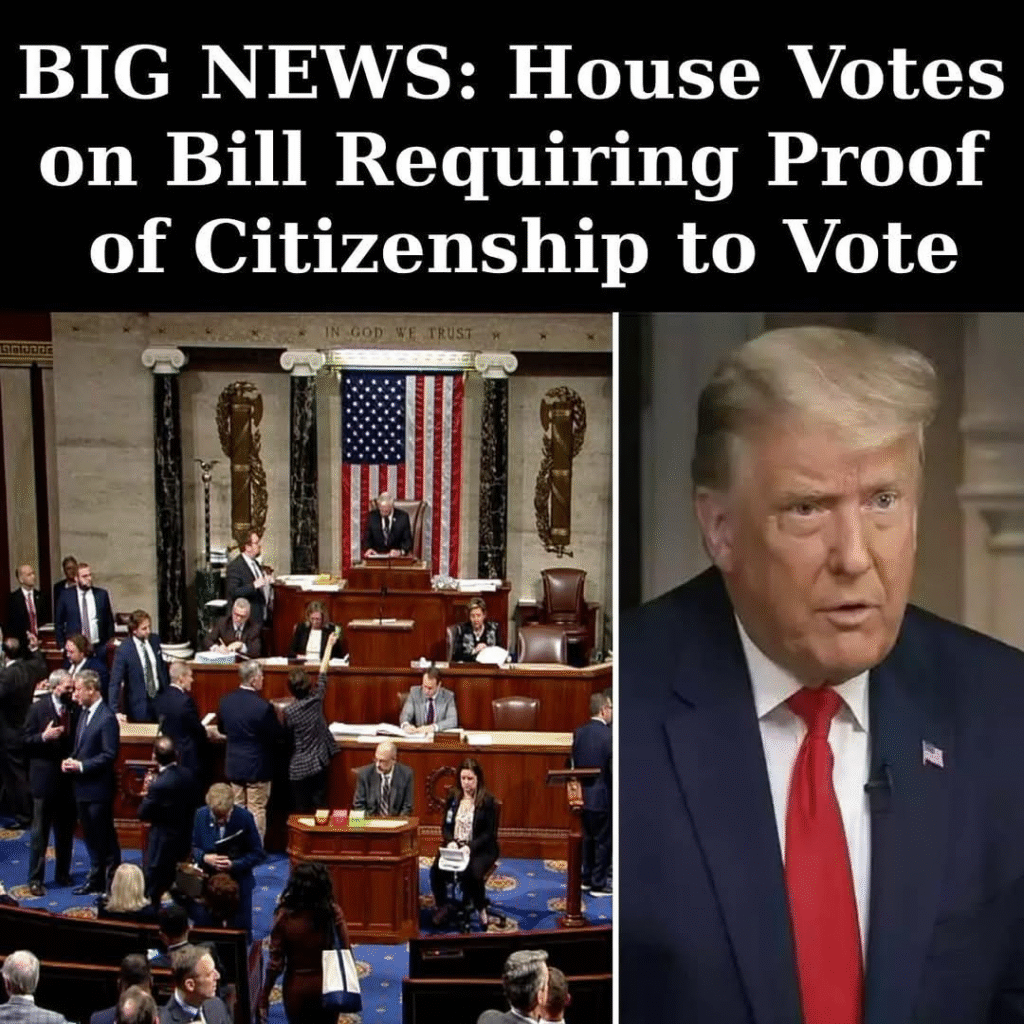
In a closely contested vote, the House of Representatives has approved a bill that would require individuals to show proof of U.S. citizenship in order to register to vote in federal elections. The legislation, called the Safeguarding American Voter Eligibility (SAVE) Act, passed by a margin of 220–208 and now heads to the Senate, where it faces the hurdle of securing 60 votes to move forward.
If enacted, the SAVE Act would establish a uniform federal requirement for verifying citizenship during voter registration—replacing the current decentralized approach, where individual states determine their own rules. Proponents of the bill argue that it’s a necessary move to protect the integrity of federal elections and ensure that only eligible U.S. citizens are casting ballots.
Key provisions of the bill include:
- Requiring in-person presentation of citizenship documentation for voter registration in federal elections
- Mandating the removal of noncitizens from existing voter rolls
- Creating standardized federal guidelines for confirming voter eligibility
- Implementing enforcement measures to ensure compliance across states
At present, voter registration rules vary widely from state to state. While some require official documents like birth certificates or passports, others allow voters to register by simply attesting to their citizenship status without providing physical proof.

Supporters of the SAVE Act say the legislation is essential for preserving trust in the democratic process. Critics, however, argue it could create new barriers to voting, particularly for marginalized groups who may struggle to obtain documentation.
The bill’s future in the Senate remains uncertain, but the conversation it has sparked reflects ongoing national debates around election security, access, and voter eligibility.

Dedicated and experienced pet-related content writer with a passion for animals and a proven track record of creating engaging and informative content. Skilled in researching, writing, and editing articles that educate and inspire pet owners. Strong knowledge of animal behavior, health, and care, combined with a commitment to delivering high-quality content that resonates with audiences. Seeking to leverage writing skills and passion for pets to contribute to a dynamic and mission-driven team.
